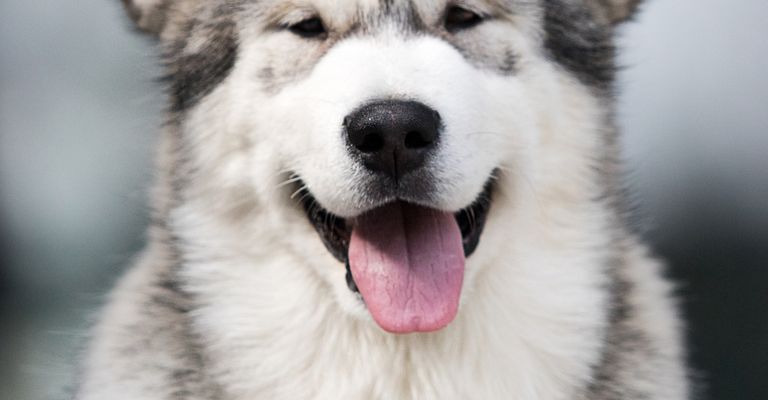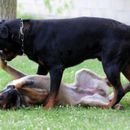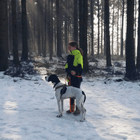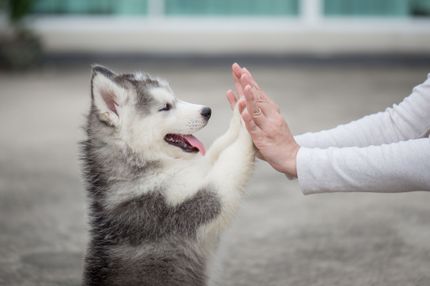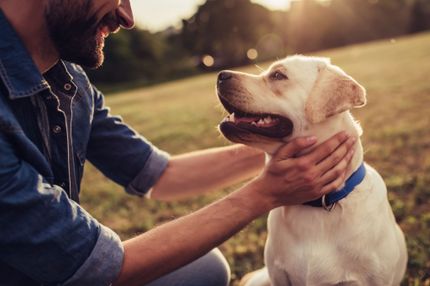Signs that a dog is rattling
When rattling, breathing often seems labored, accompanied by a visible movement of the ribcage and a rattling breathing sound. Another symptom that your dog is having trouble breathing may be the tongue hanging out, which may even turn blue . Such discoloration is a life-threatening sign and you should seek immediate veterinary attention.
What is the first thing I should do?
If your dog suddenly starts rattling, it's best to stay calm. First check whether there may be a small foreign object such as a toy or treat stuck in the throat. If it is not a foreign object, the importance of an accurate diagnosis comes into play.
Why is my dog rattling?
Rattling in dogs is not a disease in itself, but a symptom that can indicate various health problems. It can indicate a disease or blockage of the airways, but it can also be caused by anatomical conditions such as brachycephalic syndrome. When sneezing backwards , the dog also makes a rattling sound, but these attacks are usually short-lived and mostly harmless. As the causes of rattling can be very varied, it is necessary to consult a vet.
A comprehensive examination is necessary to determine the cause. The first step is to listen to the heart, windpipe and lungs and measure the body temperature. In many cases, further diagnostic measures are also necessary.
Rattling during exertion and excitement
Rattling can occur in dogs during physical exertion or stress , especially if heart problems are present. With cardiac insufficiency , the heart rate increases, the body needs more oxygen, but the heart cannot pump enough blood. This leads to congestion in the lungs, causing pulmonary edema and the dog begins to wheeze. A similar phenomenon occurs when the dog is excited - here too, the rattling increases due to the increased oxygen demand.
Rattling when sleeping
Rattling, which occurs mainly at night when sleeping, is often comparable to snoring in humans. This phenomenon is more common in brachycephalic breeds such as Pugs, Bulldogs or Boston Terriers, whose short noses lead to a narrowing of the airways. Nevertheless, a vet should be consulted if there are any concerns or if the dog also shows other symptoms of illness.
Brachycephaly as the cause of rattling
Not only when sleeping, but also during the day, brachycephalic breeds can rattle, as the airflow has to pass through a very narrow passage due to their special anatomy. This leads to the typical, rattlingbreathing noise from the throat of the affected dogs, which is often unpleasant for them. It is therefore important to ensure responsible breeding and to avoid torturous breeding at all costs.
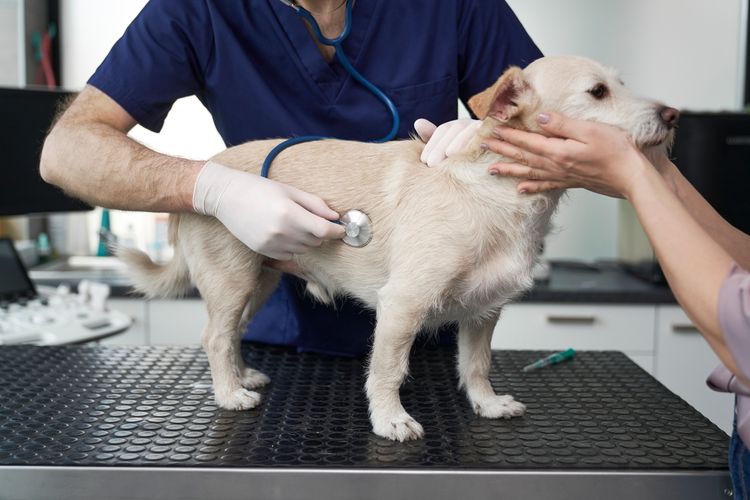
When should I go to the vet?
If the rattling occurs suddenly, becomes more severe or if your dog is also coughing or choking, it is advisable to see a vet. Signs such as poor performance or reluctance to move should also be investigated so that your dog can regain its quality of life as quickly as possible.
It is an absolute emergency if your dog is rattling and his tongue is turning blue - in this case you should go to the nearest vet immediately.
My dog is choking and coughing too
If a dog gags in addition to rattling, this may indicate an inflammation in the lungs or throat, where mucus is accumulating and irritating the airways. Foreign bodies in the airways can also cause such symptoms, as they irritate the mucous membranes and promote mucus accumulation.
Wheezing accompanied by coughing can be a sign of cardiac insufficiency , often caused by blood backing up into the left atrium of the heart. The pressure on the bronchial tubes from the enlarged atrium irritates cough receptors, while water accumulates in the lungs, leading to wheezing. Other factors such as pancreatitis, viruses, parasites or tracheal collapse can also cause similar symptoms.
Both of these symptoms are reasons to consult a vet.
Treatment and therapy
It is crucial to diagnose the exact cause of the rattling so that the appropriate treatment and medication can be used. This can vary greatly:
Cardiac insufficiency, pulmonary edema and bacterial pneumonia are treated with medication such as dehydration tablets, antibiotics and expectorants, while foreign bodies in the airways need to be removed and tumors surgically removed, depending on their location. Asthma is treated in a similar way to humans, and allergies and lung or heartworms require their own specific treatments. It is therefore essential to consult a vet in the event of prolonged or severe rattling.
Conclusion on rattling in dogs
Rattling in dogs can have many causes, from (relatively) harmless to serious health problems. It is important to look out for accompanying symptoms such as coughing, gagging or a blue tongue, as these can indicate more serious conditions such as heart problems, pneumonia or foreign bodies in the airways. Rattling should also be taken seriously during exertion, excitement or sleep. If there are any uncertainties or additional symptoms, it is always advisable to consult a vet to clarify the exact cause and start appropriate treatment. Your dog's health should always be the top priority.
Sources and relevant links
Kohn B, Schwarz G (2017). Praktikum der Hundeklinik. 12., aktualisierte Auflage. Enke Verlag.
Olerth D (2015). Das Brachyzephalensyndrom beim Hund. team.konkret.
